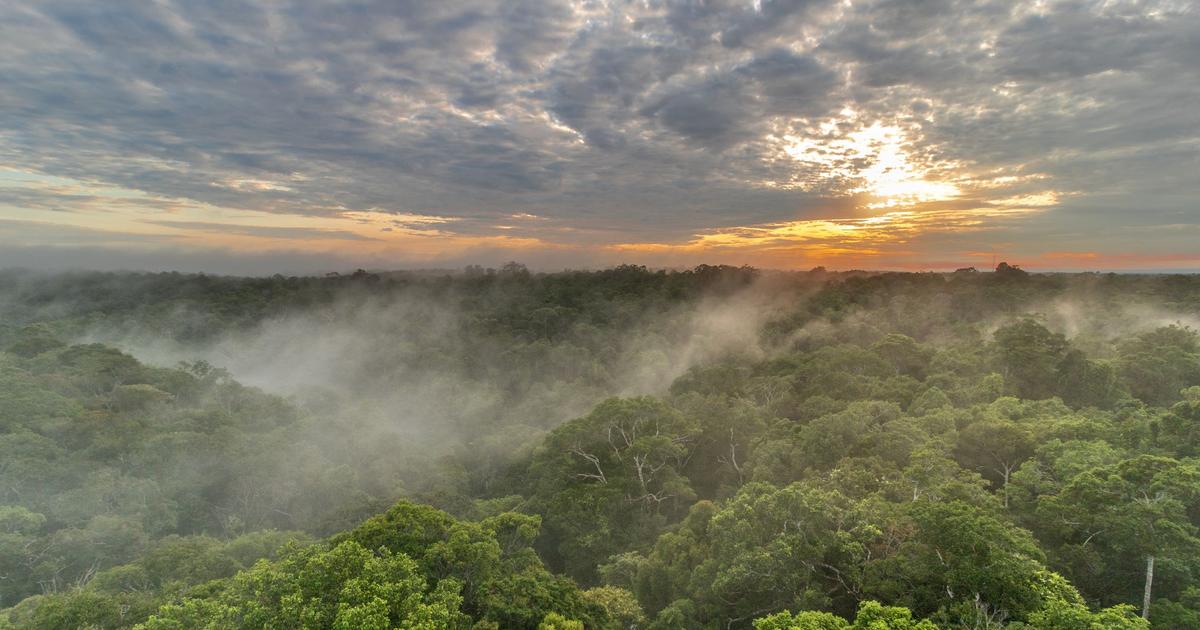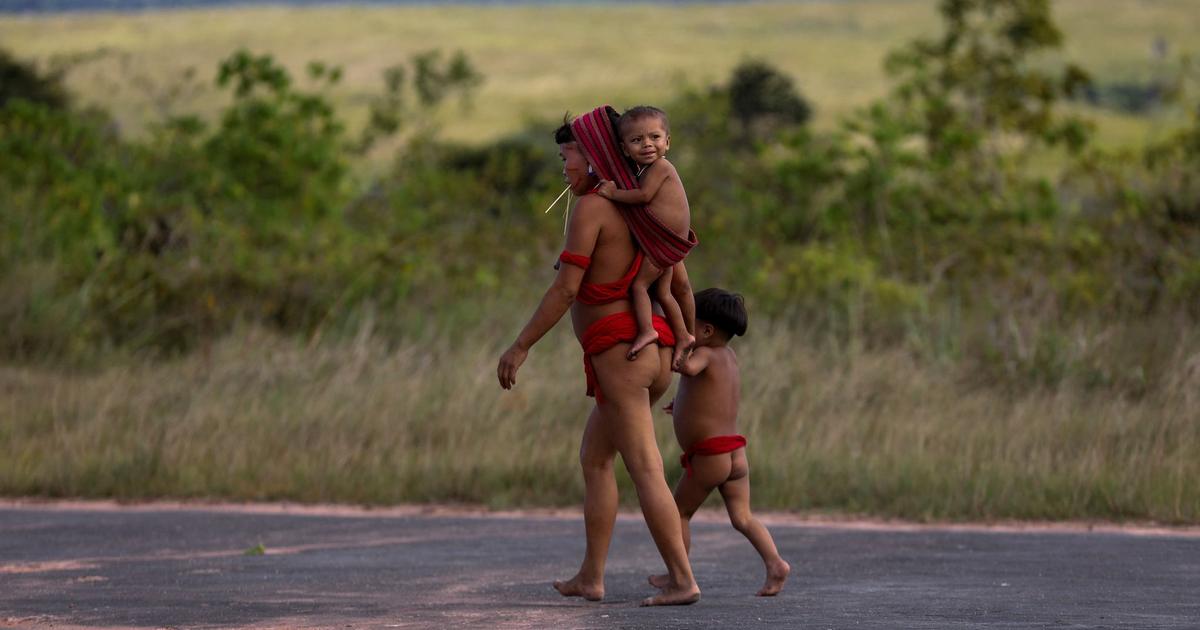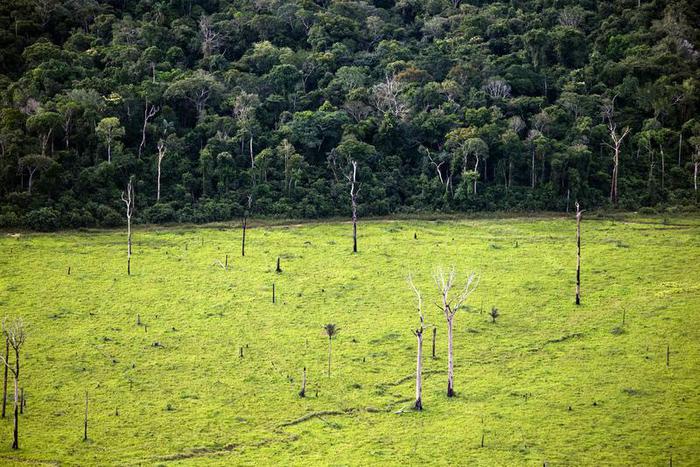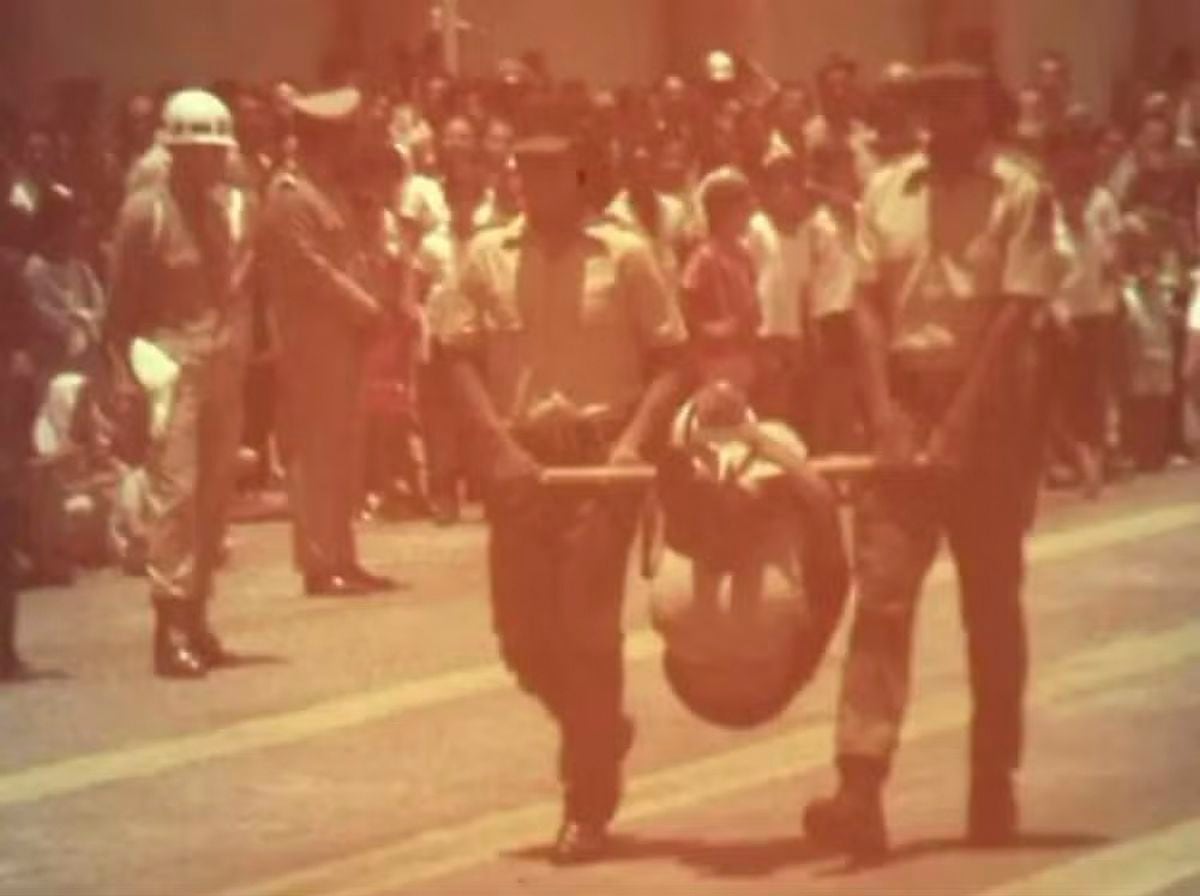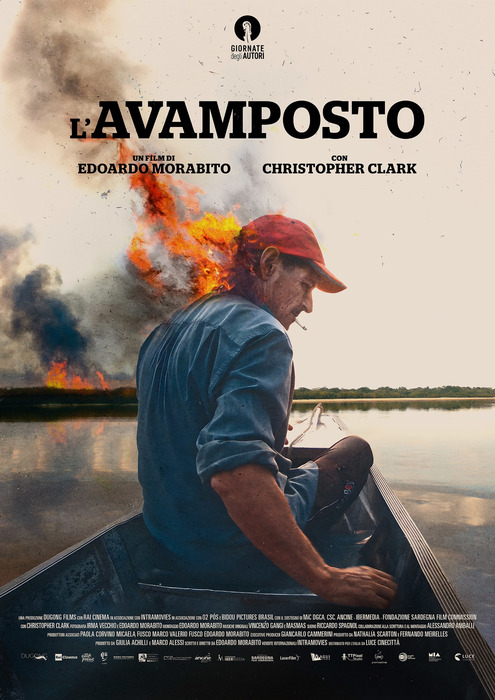Federal police officers carry a body found during the search for Pereira and Phillips;
Watchtower of the North. BRUNO KELLY (REUTERS)
The discovery on June 15 of two bodies buried in a remote area of Brazil's Amazon rainforest ended the agony of friends and family waiting for news of indigenous expert Bruno Pereira and British journalist Dom Phillips, who had been missing for 11 days.
Police were only able to find the bodies after a poacher, the first suspect arrested in the case, confessed to murdering and burying the two men, and then sinking their boat in the Itaquai River.
It was the outcome everyone feared after almost two weeks of an intensive search along the stretch of river where the men disappeared on June 5. Their violent death in the Javari Valley–an area the size of Panama where at least 10 uncontacted indigenous groups live– is much more than a tragic incident.
A June 16 editorial in the Folha de S. Paulo newspaper said,
Eleven days of agony
Wednesday, June 15.
The indigenous trackers who mobilized a few hours after the two men were reported missing focus their search on a jungle area furrowed by a meandering river.
Security forces joined in the search a day after the disappearance was reported.
The search centers on a 10-square-kilometer area where the river makes several turns, and which is relatively close to the town of Atalaia do Norte.
One of the detained suspects, Amarildo da Costa, a fisherman also known as Pelado, confesses to the crime, and leads the police to the ditch where he buried the bodies.
Hours later, the police hold a press conference to report that two bodies had been found, and provide some initial details about the circumstances of the disappearance.
10 days earlier—Sunday, June 5.
Phillips, a contributor for The Guardian, and Pereira, employed for 10 years by FUNAI, the Brazilian government agency responsible for protecting the country's indigenous peoples, were returning to Atalaia do Norte after a trip upriver to Jaburu Lake.
Phillips went there to interview some local men who manned a guard post to detect illegal invasions of Javari land, colleagues of the indigenous trackers who later searched for the missing men.
The guards belong to Univaja, an association of ethnic groups that have joined forces to defend indigenous lands in the absence of any government protection.
Pereira works closely with Univaja.
Phillips and Pereira are last seen by residents of a village called São Gabriel.
All this is going Police find “organic material that appears to be human” in the river. An indigenous source who knows this remote part of the Javari Valley tells EL PAÍS, “Everything indicates that it was not an accident, that they were ambushed.
A boat with seven empty gasoline drums doesn't just disappear like that.
The men and all the evidence evaporated.”ja members document and submit reports of illegal invasions to the authorities in hopes that they would enforce the law.
To do this, they used a combination of ancestral knowledge and state-of-the-art technology.
Indigenous patrols search for signs of Pereira and Philips, June 13, 2022. JOAO LAET (AFP)
According to the police, as Pereira and Phillips were returning from their trip, Pelado, armed with a shotgun, began pursuing them in his boat at high speed.
The fisherman and well-known poacher opens fire.
He has four other people on board his boat.
A confrontation ensues and Pelado's group overpowers Pereira and Phillips.
Pereira was used to being threatened and was often armed.
Just the day before, Pereira, Phillips, and the Univaja team had been threatened by Pelado and other poachers.
The poachers sink the men's boat engine into the river.
When Pereira and Phillips fail to return as scheduled, alarms begin sounding throughout Univaja.
The indigenous patrol teams, experts in jungle tracking, start searching but cannot locate the men and find no signs of an accident.
Pereira is an experienced jungle traveler and knows how to survive in this hostile environment.
Just days before their trip, Pereira provided the police and Ministry of Justice officials with detailed information about a criminal network allegedly involved in illegal fishing and poaching.
Also, information gathered by the indigenous patrol teams was recently used to confiscate illegal catches.
Monday, June 6.
Indigenous people report the disappearance to the authorities.
The first group of police officers join the search.
The government announces the allocation of more resources, but they are slow to materialize.
The families and colleagues of the two missing men demand a faster response because time is of the essence.
They criticize the government's failure to deploy aircraft.
The Ministry of Defense issues a statement that it is ready to assist, but that it is awaiting orders from superiors.
Indignation about the slow government response spreads among the families and colleagues of the missing men.
Meanwhile, the attackers move the bodies and bury them three kilometers inland from the river.
Police report that Pelado confessed to sandbagging and sinking the men's boat.
A forensic analyzes will confirm the identities of the bodies and the cause of death.
Tuesday, June 7.
Authorities deploy divers, police officers, and soldiers in two boats and a jet ski to aid in the search.
Relatives again criticize the failure to deploy any aircraft.
The police open a criminal investigation.
Colleagues of the two men launch an international awareness campaign asking, “Where are Bruno and Dom?”
Phillips' wife, Alessandra Sampaio, records a video imploring authorities: “Even if the love of my life is dead, they must be found.
Please accelerate the search.”
Pereira's partner, Beatriz Matos, says that “every minute counts.
Any part of the river or jungle that has not been searched could be the place where they are waiting to be rescued.”
President Jair Bolsonaro, who treats NGOs, indigenous people, and the press as enemies, is dismissive and says, “Two people on a boat trip in a completely wild area like this– it's an adventure that's not at all advisable.
Anything can happen.
They could have had an accident or been murdered.”
Police escort the fisherman who confessed to the murder of Pereira and Phillips;
Northern Watchtower.
AVENER PRADO (AFP)
Wednesday, June 8.
Several people are interrogated, and Pelado is arrested after an eyewitness to the June 5 chase testifies.
He is initially charged only with illegal possession of restricted-use ammunition, but later he is formally named as a suspect in the disappearance of Pereira and Phillips.
When the Brazilian news media report that Pelado's two defense lawyers are government officials, not uncommon in remote areas of the country, both lawyers resign from the case.
Thursday, June 9.
Bolsonaro and Biden meet for the first time during the Summit of the Americas in Los Angeles (California).
The public outcry demanding more government resources to aid in the search reaches the ears of summit delegates.
Friday, June 10.
Police find “organic material that appears to be human” in the river.
An indigenous source who knows this remote part of the Javari Valley tells EL PAÍS, “Everything indicates that it was not an accident, that they were ambushed.
A boat with seven empty gasoline drums doesn't just disappear like that.
The men and all the evidence evaporated.”
Saturday, June 11.
Pelado's family claims he was tortured.
His brother, Oseney da Costa, tells an Associated Press reporter, “They wanted him to confess, but he's innocent,” A few days later, Oseney is also arrested.
Sunday, June 12.
The first solid information in the case comes out.
Univaja trackers find a backpack tied to a tree in a flooded area near where the missing men were last seen.
Inside the backpack are Pereira's health card, boots belonging to Pereira and Phillips, rubber sandals, and some clothing.
: An indigenous man passes by a banner memorializing Phillips (left) and Pereira during a protest in front of FUNAI's offices in Brasilia. UESLEI MARCELINO (REUTERS)
Monday, June 13.
Roberto Doring, the second in command at the Embassy of Brazil in London, notifies Phillips' brothers that he has some news.
Doring communicated with them through “an official Brazilian spokesperson,” according to the Phillips family.
"He told us that two bodies had been found, but had not yet been identified."
Phillips' wife released this information, which was published by many Brazilian and international news outlets, including EL PAÍS.
The Brazilian police later issued a statement that, “The reports that the bodies have been found are not true.”
The Brazilian ambassador later apologized to the Phillips family.
President Bolsonaro comments on the case again, this time in gross detail.
“There are indications that something evil was done to them because human entrails were found floating in the river.
It has been taken to Brasilia for DNA testing.”
Tuesday, June 14.
A second suspect is arrested—Pelado's brother, Oseney da Costa.
Wednesday, June 15.
The federal police chief in Amazonas confirms in a late-night press conference in Manaus that the bodies of Pereira and Phillips have been found.
He provides additional information about Pelado's confession.
“Now we can bring them home and lovingly say our goodbyes,” said Phillips' wife.
“And today we will begin seeking justice for them.”

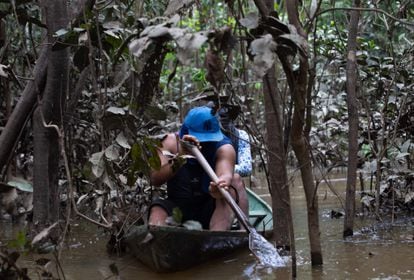
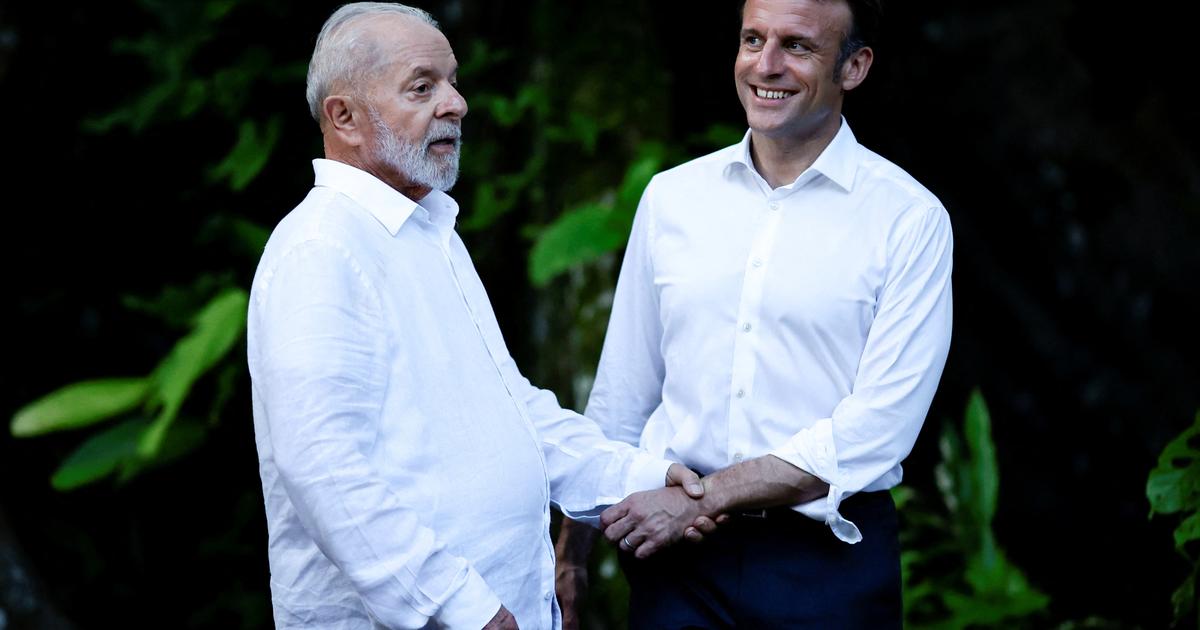
/cloudfront-eu-central-1.images.arcpublishing.com/prisa/UYB5LX3DDBAQTJNDI5EKYZLHEM.jpg)
